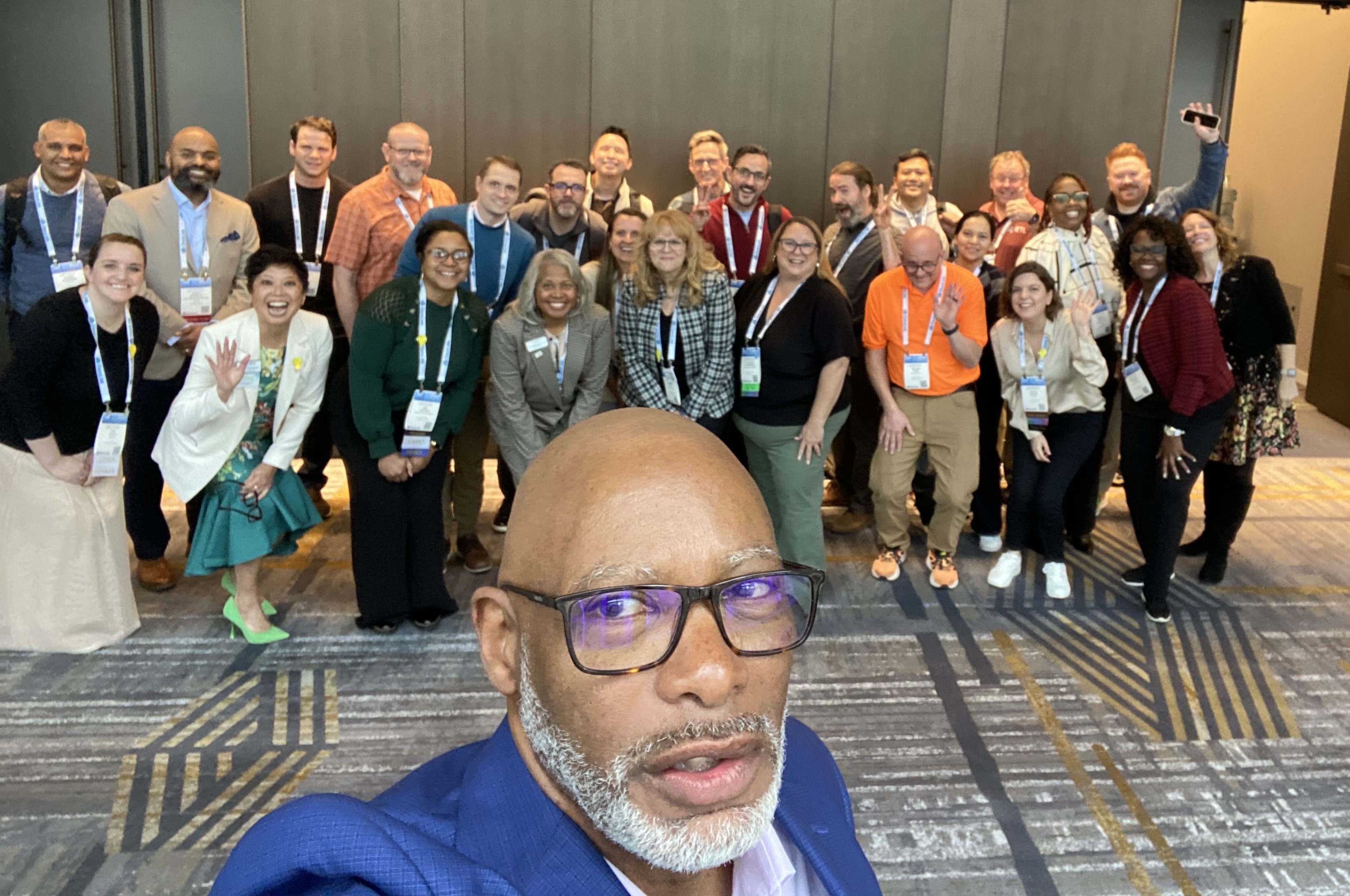3 Reasons Every School Should Have An Esports Team
Esports can be as valuable for our students as “real” sports are.
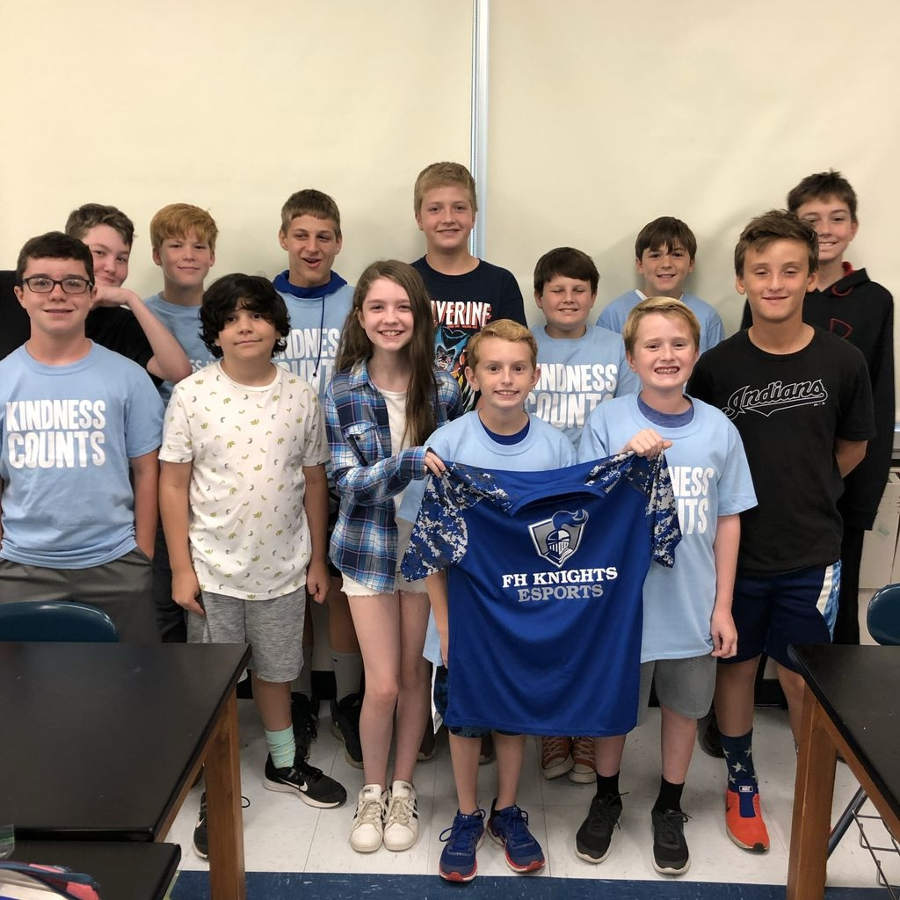
In 1998, when I was in 8th grade, Blizzard released Starcraft. Starcraft was my first introduction to esports. My friends and I loved Starcraft. We would bring our computers to each other’s houses and play after school or sports practice. It wasn’t long before Starcraft blew up around town and the local computer store started to host Starcraft LAN tournaments. My friends and I would play in as many tournaments as we could. Even when we didn’t win, we still loved the competition and cheering for each other.
In 2011, I went to my first professional esports tournament. There was a Starcraft II tournament at Caesars casino in Atlantic City. My friends and I, the same friends I’ve been playing games with since 1998, decided to go check it out. The tournament had light effects, smoke machines, entrance music, walkouts, jumbo trons, and live casting. The capacity crowd knew every player by name and would chant and cheer for their favorite players. It was awesome. I never knew esports existed on that level. By 2011, I’d already been teaching for five years. I’d been coaching varsity football, wrestling, and track for five years, too. As someone who has a foot in both the esports and traditional sports world, Atlantic City was a wake up call: we need esports in education.
I’ve played video games competitively since Starcraft in 1998. I was a three sport athlete in high school, played sports in college, and I have more than a decade of varsity coaching experience under my belt. So I feel qualified to say that esports can be as valuable for our students as “real” sports are. Since 2011, after that trip to Atlantic City, I was determined to help bring esports to education. Seven years later, I finally got the chance.
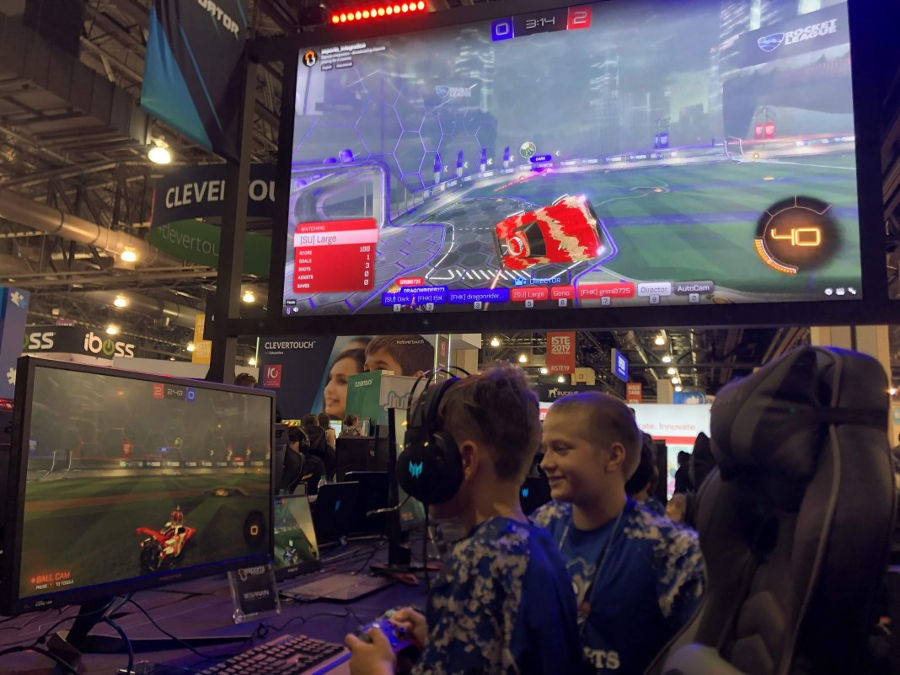
In September 2018, after six months of planning, my school district approved the creation of my FH Knights esports team. The FH Knights are the first middle school esports team in the country. We are currently taking on all comers in Rocket League. I say all comers because as the first middle school esports team in the country there were no other middle schools to play, so I scheduled colleges. For our first match, I reached out to Rutgers University to see if they would play us. To my surprise, they agreed. The first middle school esports match ever was actually against a college. We got our doors blown off.
Even though we got trounced, the fact that a middle school team took on a college team got a lot of coverage in the press. My kids and I did some interviews including interviews for NBC and PBS. Flying high on the back of our coverage, I reached out to a friend, Steve Issacs, who had a video game club at his middle school. I asked him if he could put together a Rocket League team to play against my kids. A couple weeks later, the first true middle school vs. middle school match happened. We played each other a few more times that year and even played another middle school from Pennsylvania who we inspired to start their own team. While we didn’t play many matches that first year, I learned a lot as a coach. We will be even better this year. Most importantly, though, over the last 18+ months running an esports team I learned the three reasons why every school should have an esports team.
1. Esports is a great way to teach the soft stuff and the hard stuff
Esports is a great place to teach students the soft stuff. Leadership, communication, teamwork, and how to win and lose with class are just some of the soft skills that can be taught through esports. The value of teaching Social and Emotional Learning (SEL) through esports is proven, but it isn’t new. Mindfulness and SEL training is being done at the collegiate and pro level, so it is only natural that it is trickling down to the high school and middle school level. Some of the more advanced K12 esports programs are starting to teach how nutrition and exercise can improve performance and how players can avoid becoming triggered, playing tilted, and handle toxicity when gaming. There is no doubt that esports is a great way to improve students skills set and social and emotional learning. While we should continue to teach and grow the soft stuff through esports, it is important, maybe more so, that we are teaching the hard stuff at the middle school and high school level.
We as adults have done a terrible job teaching kids how to navigate the internet and internet culture. While an overwhelming majority of what goes on on social media, the comment sections of websites, and forums like Reddit on the internet is fine, if not downright boring, there is a subsection of the internet that is a toxic place full of horrible people. Horrible places on the internet filled with racism, misogyny, and homophobia. Horrible places that use meme culture to recruit kids into white supremacist groups and places that celebrate school shooters and other acts of terror. It is our duty as teachers to help keep students safe and identify hazards. Having an esports team, which is likely to be full of internet savvy students, is a great place to tackle the tough but important cultural issues our students face on a regular basis that fly under most adults radar. The usual Digital Citizenship curriculum is not enough. We need to be there to help unpack their experiences on the internet and model behavior so they can remain safe. Esports is also a way to educate our most vulnerable students.
Tech & Learning Newsletter
Tools and ideas to transform education. Sign up below.
2. Esports builds a sense of belonging
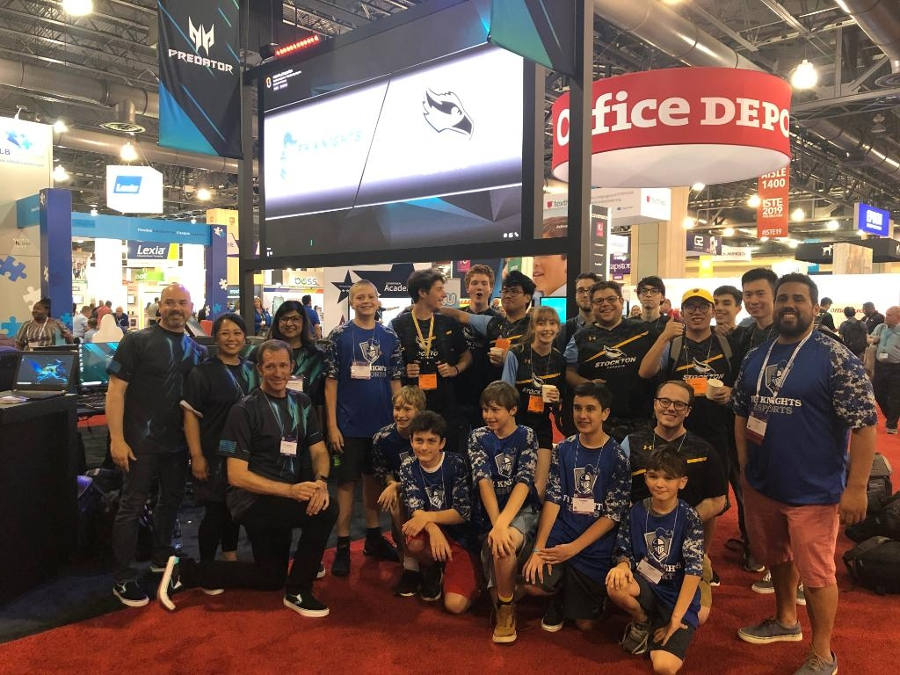
When I first started my esports team, I was surprised to see who came out. Not a single student was playing a sport nor did they have any home/school connection. They weren’t involved in any clubs either. Mostly, my kids went home after school everyday and played video games by themselves. The best part about starting my esports team is watching my kids develop a sense of belonging. The community that I’ve built around esports at my school has given them a new social group to be a part of. Instead of playing alone, my kids generally game together outside of school. After our matches, they often go out for a slice of pizza together. It is the sense of community and belonging that is esports greatest strength since the kids who may need to feel like part of something the most, aren’t getting it anywhere else.
I helped facilitate this sense of community in a few key ways. The first is making sure we have a code of conduct. Your esports team has to be a safe place for everyone. Laying out how we are going to treat each other is an important first step to building a community of caring. Second, one of the first things I did as coach was buy my kids team jerseys. Watching them walk down the halls collecting high fives in their sweet-looking esports jerseys is a thing of beauty. Finally, I’m tough on them. I’m tough in two ways. I’m tough because I have tied eligibility to grades, attendance, and behavior. If students don’t show up or act appropriately they could be benched, suspended, or removed from the team. I’m also tough in what I expect. Just like when I coach my traditional athletes, I am all over my kids. I’m always telling them they can work harder or they can be better. Being tough on them is a way of showing how much you care about them and believe in them. Having tough team rules around attendance and behavior shows them that you take esports and their presence on the team seriously. It lets them know you value them and you will only accept their best. Esports lets you set high expectations that your students can live up to.
3. Esports is great for creating the pipeline
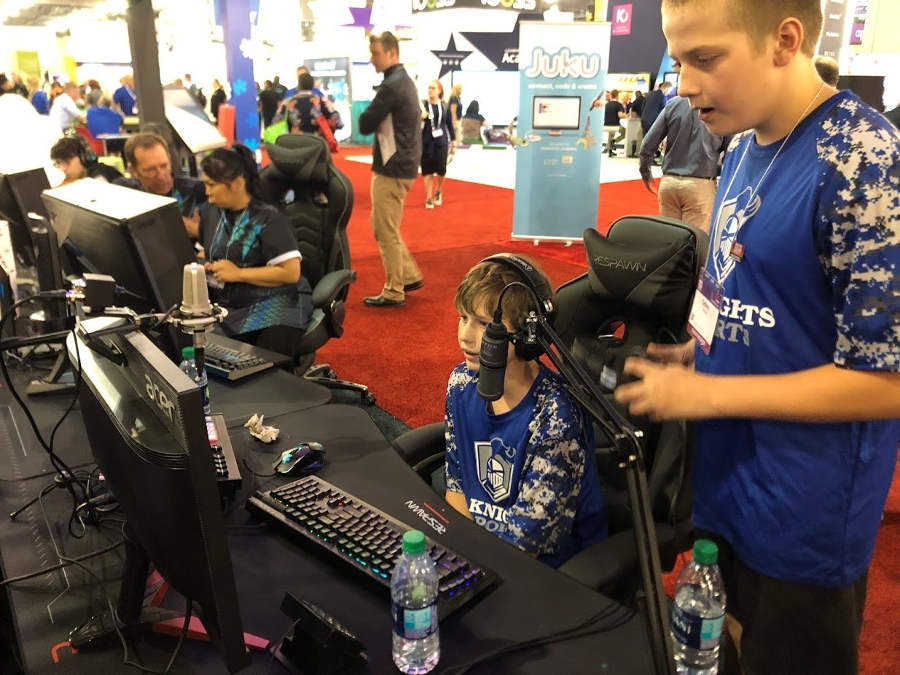
Having an esports team presents a great opportunity to empower students’ Career and Technical Education (CTE). Since esports is the fastest growing industry in the world, it is important that students know that they can turn their love of video games into careers, especially STEM careers. I call this the pipeline. We need to create then show kids the pipeline they can follow to get from middle school through college and into a career by following their passion for gaming.
To do this, I have a team behind my esports team to help build out my esports ecosystem. I don’t just have players on my team, I have players and other support staff that fill vital support roles on the esports team. Roles such as shout caster, IT specialist, scout, statistician, graphic designer, video editor, event planner, journalist, accountant, marketeer, and many more. By giving students the jobs that need to be done to run a successful esports team, they are getting hands on experience with possible careers they might want to explore as they get older. To further support this notion, besides the competition the main reason my kids play colleges is because afterwards I have the college players talk about what they are majoring in and how their passion for gaming plays a role in their choice. My students leave feeling inspired after talking to the college students about their shared passion. My kids who may not think college is an option for them are realizing that maybe they want to go to college because they can continue to pursue esports at the collegiate level and then graduate into a career, traditional or otherwise, that lets them continue to be involved in gaming. The esports pipeline we build can carry our kids through college and beyond.
Every school should have an esports team.
Until Next Time,
GLHF
cross-posted at Teched Up Teacher
Chris Aviles presents on education topics including gamification, technology integration, BYOD, blended learning, and the flipped classroom. Read more at Teched Up Teacher.
